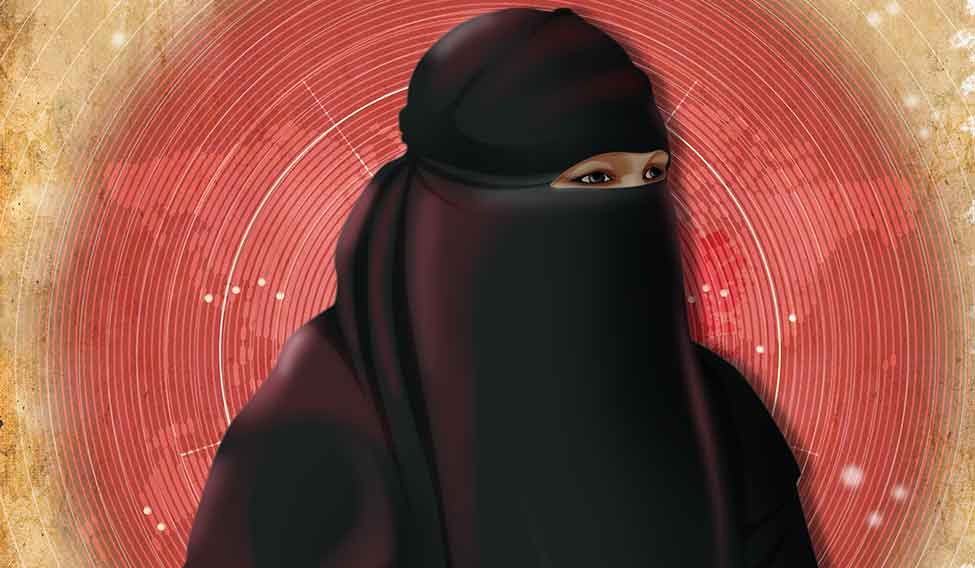She was on WhatsApp, Facebook, Kik, Twitter and Telegram. And, had 12 email accounts. Some handles had her own name, others had the word maseeha (saviour). She was also known by the handle “radical gun”. Halima al Sadia, 17, was born into a middle-class family in Phule Nagar, west Pune. And, she wanted to fight for Islamic State.
Intelligence agencies locked on to her last September, and now she is being rehabilitated. Everybody in Phule Nagar is aware of what happened, but almost nobody will talk. And, the family is not there anymore. “The family had been asked not to meet strangers. Maybe, they were so apprehensive that they went underground,” a social activist told THE WEEK.
Sadia's friend Baba Lahori said that she had met her twice, after the sleuths thwarted her plans to join IS. “She told me to stay away as her activities were being surveilled. She said the police were after her,” Lahori said. Some people hint that intelligence agencies advised the family to shift base for now.
Intelligence sources told THE WEEK that their priority was to bring her back into the mainstream. And, one of the people roped in for the task is Qari Idris, president of the Pune unit of the Jamiat Ulema-e-Hind, the organisation of Islamic scholars in India. “We told her that jihad essentially was to devote your self and your mind to the path of Allah,” he said. Idris said Halima's handlers had swayed her by feeding her misinterpretations of the Quran and the Hadith.
The handlers According to sleuths, Halima's first handlers were Abu Jamal from Colombo and Umar Muhammad, about whom not much is known, except that he promised her that he would “take care of her and her wishes”. A counter-terrorism cop who had interrogated Halima for many hours said that for more than six months she had interacted with many local and foreign recruiters who were working in tandem with the IS social media team, a diffused group with worldwide reach. Halima called her social media network her “immediate small world” which she treasured.
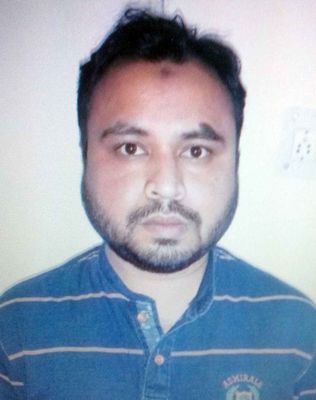 Sirajuddin
Sirajuddin
She was closest to Muhammad Sirajuddin, an assistant sales manager of Indian Oil Corporation in Jaipur. A mechanical engineer, Sirajuddin hails from Gulbarga, Karnataka. The anti-terrorism squad of the Rajasthan Police arrested him from his residence in Jaipur's Jawahar Nagar last December.
The police said that Sirajuddin confessed to handling propaganda for IS. Security officials said he managed Khilafat News Agency, a pro-IS newsletter. He reportedly told the police that his “tryst” with Halima began as a “loose acquaintance”, and the IS leadership asked him to “shepherd her” after being convinced about the depth of her conviction.
Quoting from Sirajuddin's confessions, the police said that he and Halima participated in “virtual discourses on jihad” and got “deeply interested” in each other. They talked about everything from “legitimate instruments of jihad” to various “jihadist interpretations” in Islamic scripture.
The National Investigation Agency has been asked to re-investigate Sirajuddin's case, given its international dimensions. "We requested the NIA to take a fresh look at Sirajuddin's virtual contacts and their security ramifications,” said B.L. Meena, deputy inspector general of police (anti-terrorism squad), Jaipur. The NIA has filed a fresh first information report and is expected to interrogate Sirajuddin, who is being held in Jaipur Central Jail.
Usually, the NIA is expected to file a charge sheet in 90 days. In this case, the agency has been given 180 days. An ATS official said this was to help the agency “carry out its own probe into the case, which is unwieldy and involves foreign nationals.
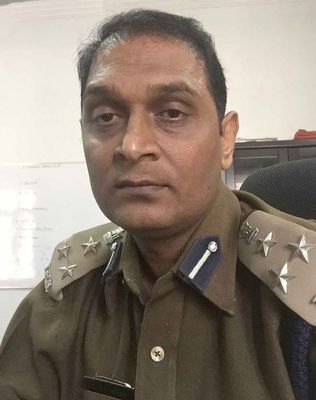 B.L. Meena, , deputy inspector general (ATS), Jaipur
B.L. Meena, , deputy inspector general (ATS), Jaipur
Silent, and then, violent Halima's mother is a teacher and father works with a private firm. They were initially oblivious to the indoctrination of their daughter. Her maternal uncle, who lives as part of the joint family, too, said he had no clue. They thought she had become more religious, but did not feel there was cause for worry.
Halima's aunt was the first to notice her hardening religious stance, but thought it was cosmetic. “She wanted you to understand how a hijab was different from a burqa or for that matter a niqab and a shayla from an al amira,” she said. Halima started wearing a hijab, praying routinely and advised others to follow suit.
Alarm bells went off when she told the family that Shias were not Muslims. She said she was part of the “global moral outrage” which opposed all that was wrong with the decadent west. Halima told her parents that the lifestyle promoted by the Salafi hardliners was the ideal one. And that Al Qaeda and IS were both good defenders of Islam, and good Muslims were the ones supporting those causes. So, she said, she wanted to commit herself to the cause of jihad and towards the rise of the caliphate. The convent-educated girl, who had dreamt of becoming a professional, was changing fast.
An ATS officer said that Halima's aunt told him that her niece had “slowly become a recluse of sorts with a traditional twist in her ways and methods, especially in how she chose to dress, talk and carry herself along.”
Recluse she might have been, but she was closely monitoring international events. A counter-terror official who interrogated the girl said, “You are far above the ordinary, when at this young age you can discuss the overall differences between Al Qaeda and IS as separate organisational entities.” Halima told the official about how Al Qaeda wanted people to join it and then work towards a caliphate, while IS wanted to build a caliphate first and then invite people to join it.
Halima's television channel of choice was al Jazeera. “She took a deep interest in geopolitical affairs, watching a slew of other television channels which have Islam and discourses on Islam as content,” said a counter-terror officer. While news channels kept her updated, her indoctrination was further fuelled by pro-IS videos on YouTube.
She told her parents that she was “stateless”. She said that only “geography tied her to India, else she is an IS citizen.” She stressed that “Indian Muslims were no Muslims” as they were “insincere” when it came to their religion.
Probe and interrogation The lid on Halima's activities was blown off when the Intelligence Bureau tipped off their Maharashtra counterparts in August-September 2015. The IB's technical intelligence team tracked her online activities and warned the state police that she “was set to go offline anytime soon”. Sirajuddin's arrest in December yielded more information and leads.
After she was picked up, she told interrogators that IS planned to attack the Indian subcontinent tentatively in 2020. Her handlers, she said, had promised to spirit her out to Syria in 2017. As she did not have a passport, she was asked to get one at the earliest. She had not discussed her plans with anyone other than her handlers, she said. Her ambition was either to be a nurse in IS-held territory, or be a suicide bomber.
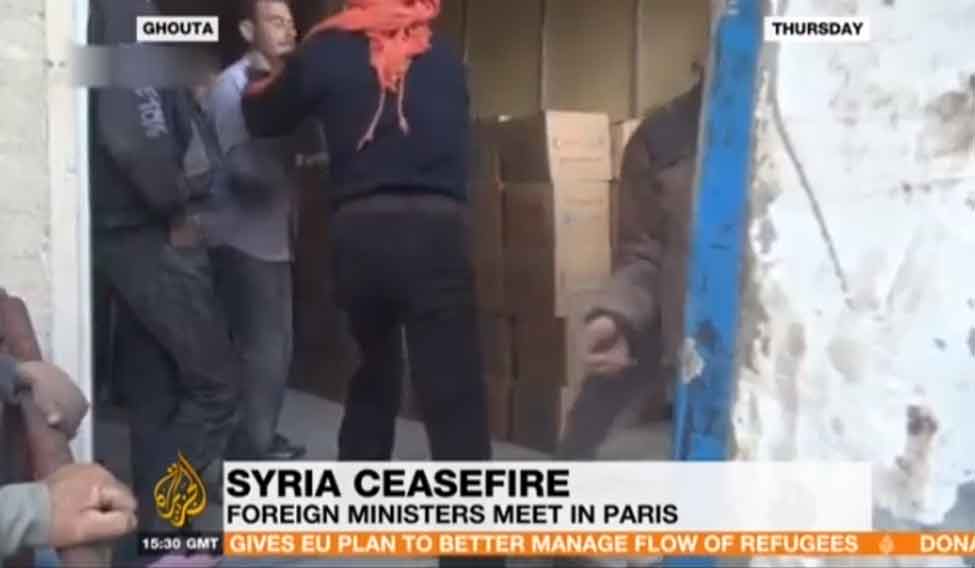
Sirajuddin's wife, Fatima, too, reportedly wanted to be a suicide bomber. Meena said, “Sirajuddin and Fatima's conversation revealed that she wanted to go to Libya. He wanted both of them to go to Syria.” An ATS officer said Sirajuddin's key contacts were known by cryptic handles: Rebel Munir from Kashmir, Khalid bin Walid and Mohammad Nasim from Yemen, Hyder Hyder from the UK, Fatima from Argentina and Karen from the Philippines.
“Sirajuddin got recruited by IS and then he turned recruiter. We believe he was in touch with a section of the IS leadership,” said Alok Tripathi, additional director general of police, Rajasthan ATS. Another officer said that he was part of five WhatsApp groups and connected to five more groups through Telegram Messenger. The officer said, “We have reasons to believe that Sirajuddin was anti-US, anti-Israel and pro-Pakistan.”
SECURITY OFFICIALS SAID Sirajuddin's posts often discussed the Khorasan Hadith and the Gazwa-e-Hind Hadith. The first refers to Islamic warriors from the proverbial Khorasan region (now in Afghanistan) overrunning the subcontinent. The second one talks about the apocalyptic battle in which Muslims defeat India.
Investigators hit a mother lode when they cracked WhatsApp conversations between Halima and her three major handlers—Sirajuddin, Jamal and Muhammad. The 200 pages of decrypted messages were analysed by officers in Pune, Mumbai and Jaipur. Not surprisingly, bulk of the conversations were between Halima and Sirajuddin. THE WEEK saw some of the messages. Content ranged from IS gossip to plans for “fundraising, data mining and coordination of action”.
Meena, the ATS DIG, said Sirajuddin was picked up only after they were sure that “he was into the [implementation] stage, as he was talking about planning and logistics.”
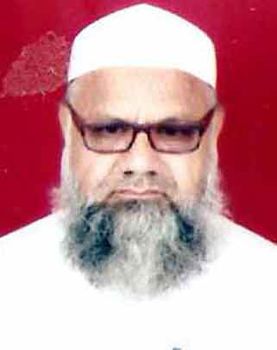 Qari Idris, of the Jamiat Ulema-e-Hind's Pune unit
Qari Idris, of the Jamiat Ulema-e-Hind's Pune unit
The investigators are working on the Telegram Messenger content, as it is “end–to-end encrypted” and has a timer which automatically erases content depending on the setting. “Those encrypted messages are very essential to ascertain if Halima and Sirajuddin were in touch with mid-rung to mid-senior level IS leadership,” said an ATS officer. The IB is reportedly assisting ATS units in Pune, Mumbai and Jaipur to access encrypted content.
Rehabilitating Halima THE WEEK met Qari Idris at a madrassa close to the Makka Masjid in Pune's Mitha Nagar area. The scholar said, “I was surprised by Halima’s deep analytical and reasoning skills, and sense of altruism, that typically define today’s jihadist militants.”
Halima asked him what the ulemas were doing about the Bashar al-Assad regime in Syria. Then, she said “America created the mess in Syria and the larger Arab world,” and added that “our Muslim brothers are facing the brunt of it and we should step in on the side of the right”. She also told police officers, “I cannot bear innocent Muslims being brutalised and killed for no fault of theirs.”
Idris said, “Halima was not thinking about her selfish interests, but about the suffering and injustice faced by Muslims. She was preparing to answer the ‘larger call of jihad’, or at least that was what she thought she was doing. We would have lost Halima had the state security agencies not acted in time.”
Altruism is the hallmark of most terrorists, said Dipak Gupta, Fred J. Hansen professor of Peace Studies at the San Diego State University, California. “Pursuit of altruistic goals separates a terrorist from a common criminal.”
Idris said he had had at least four one-on-one chats with Halima, where he offered a counter to the narrative she was fed. “I told her that she was a victim of afkar daiyiqah [narrow-mindedness]. And that she should come out of it. She accepted that Islam’s primary role was in moral and spiritual sustenance, which contrasted with the militant Islamist visions and pan-Islamism propagated by IS and Al Qaeda.”
He said he also spoke to her about the futility of matching arms with the US. “I asked her, 'Can you stop the US from bombing [IS in] Syria? Or reverse what they have done or are doing in Iraq and Afghanistan?'” he said. She responded in the negative.
Investigators, too, were impressed by her ability to connect current incidents with her interpretation of the sharia law. “She was familiar with even the minor nuances of the foundational concepts of Islam. She stressed that Islam is less of a religion, and more of a way of life,” said an ATS officer.
Terrorism historian Mark Sedgwick has said that radicalisation is “what goes on before the bomb goes off”. Experts who have worked on rehabilitating terrorists say that there is a spectrum of activities from moral support to actual operations. In Halima's case, she did not do anything, though she intended to.
So now, ATS officers say, support from family and elders in the community is paramount. “The first task was to offer her a counter-narrative and then slowly work towards making her accept it. We have been partly successful,” an IB officer said. “We don't think she has come out of the radical impulses completely. We need to keep a watch on her.”
An ATS officer said, “It is a challenge like we have never faced before. We could not arrest her, but had to keep her under close surveillance. She had an infected mind, and, in such cases, we are never sure as to how successful we are [with rehabilitation]. Halima was in touch with at least 200 people through Facebook. A good number of these people are either IS supporters or sympathisers. A handful of them are IS instigators who reported to the primary handlers, who are jihadist recruiters or propagandists. What makes Halima’s case all the more worrying is that she had finalised her Syria plans.” But, yes, for the same reason the intelligence agencies count this a win. They successfully pulled the plug on her plans.
The IB has allowed a “supervised release”, letting her move ahead and pursue her studies in Class 12. She reportedly told them that she wanted to join the civil services some day. But, as far the IB is concerned, Halima continues to be an “at risk” individual.
In Islamic lore, Halima is the beloved wet-nurse of the Prophet Mohammed. The name itself means gentle, mild-mannered and generous. The original Halima was considered to be an embodiment of these virtues. And, that is all Halima al Sadia's family wants. For the name to come true. Again.




